- Home
- Julie Smith
Louisiana Lament Page 3
Louisiana Lament Read online
Page 3
“Embarrassed? What about?”
“Ya promise ya won’t laugh?”
“Sure. Cross my heart.”
“Okay, look. I wadn’t doin’ nothin’ with my life, okay? Coreen said so, and her mama, and everybody—they was tryin’ to get me to get my GED, find a decent job—and I just never thought I could. I mean…” She stared out the window for a moment. “…I ’bout half didn’t even want to.”
Talba nodded. “Lotta work,” she said. “The hard part’s getting up your nerve.”
“Well, you helped me.” The girl looked down again. “You come in lookin’ so pretty and bein’ famous and everything—I mean, jus’ for being a poet—then I start readin’ in the paper about ya, find out you a detective and everything, and I thought, we got the same blood! We the same. I gotta do that.”
Talba’s heart pounded. This wasn’t exactly what she’d expected. “It pays really badly,” she said, to cover her own embarrassment.
“I don’t mean be a detective. I mean I thought I gotta improve myself—make somethin’ of myself. But I didn’t want to talk to you till I done it. I didn’t feel right, see?”
“I guess so,” Talba said, somewhat reluctantly. This was a reasonably foreign idea, thanks to her pushy mama, Miz Clara, who’d not only always told her she could be anything, but had more or less required her to. She and her brother, Corey, both. Corey was a doctor, the least of the three professions Miz Clara deemed suitable for her offspring. The other two were speaker of the house and first African-American president. That kind of thing probably bred confidence as well as neuroses.
“So I get my frien’ Coreen to help me fix myself up. I look better, don’t I?”
“You look really good.” Janessa was worlds away from the hostile, unkempt girl who had held her hand and applied Professor Plum. That girl had seemed without hope or dignity or pride. “What about your GED?” she asked.
“Got it!” Janessa said, and held her hand up for a high-five. Talba smacked her palm. “All right!” She let a beat pass. “And now you’re an artist.”
“Oh, no, I ain’t no artist! No way. But I painted all those nails, you know? I can stay in the lines real good. I was just doin’ some regular paintin’—just walls and woodwork and stuff for Rashad—I mean, he hire me for Allyson—and they get this other guy, a real artist, to paint the bathroom. But he quit in the middle. Only he left this stencil thing, and Rashad figured out I could put leaves on as good as the next person if I had a pattern to go by. So that’s all I been doin’. I ain’t got no career yet.”
“How do you know Rashad?”
Janessa smiled. It was probably the first time she had, in their brief acquaintance. For the first time, Talba caught a glimpse of the real Janessa, the one who wasn’t so busy being hostile or embarrassed or both that she looked like a black cloud. She looked good—like any other young girl with a future. “I took his poetry class,” she said.
Talba was just taking a sip of her coffee. Her hand jerked, and she spilled a big glop on her white shirt. “Damn!” She grabbed a napkin and dabbed at it.
Janessa was amused. “You think I’m tryin’ to turn into you? Steal your identity or somethin’?”
In fact, it had crossed Talba’s mind.
Janessa shrugged. “Just thought I’d try it, tha’s all. Maybe see what it’s all about so if I ever do come hear ya read, I won’t be stupid. But guess what? I still will be. Didn’t get nothin’ about it. But me and Rashad, we hit it off.”
Talba was still dabbing at her spot. “Where does Rashad teach?”
“UNO. Adult ed.” University of New Orleans. “Real good class, too. But I like this paintin’ thing. Maybe I’ll take drawing next. Some kind of art.”
Talba felt they were getting off the subject, whatever it was. She didn’t know where Janessa was going, but to her, this conversation was about how her sister had come to find a body that morning. She said, “Is Rashad your boyfriend?”
Again, Janessa smiled. “Closest thing I got to one.”
Meaning what? Talba thought. You sleep together now and then? She didn’t ask. Instead, she said, “Where do you think Rashad is now?”
Something flickered briefly on the girl’s face—fear, perhaps—and then grief took over; all-out misery. Janessa lowered her face and whispered, “I don’t know. I just don’t know.” When she looked up, her cheeks were wet again.
“Is that why you called me? You think I can find him?”
“No! Why you say that? I never even thought of that till you said it just now. I call you ’cause I thought you’d know what to do.”
Uh-huh. “Do you think Rashad killed Allyson?”
Janessa hit the table with her open palm. “Why the hell he do somethin’ stupid like that?”
Talba took a leaf from Crockett’s book. “You tell me.”
The girl calmed down. “No way. No way in hell Rashad kill Miz Allyson. She a bitch, but he love her, he crazy about her. But…you know.”
“No doubt. But fill me in, just in case.”
“Well, he black and he missin’, ain’t he? What you think them white po-lice gon’ think?”
“That ‘missing’ part’s a little sticky,” Talba mused.
“Well, you a PI. You could find him.” Janessa spoke so wistfully that Talba was inclined to treat her gently.
“Uh—Janessa. Do you really think that’s what he’d want? If he’s missing, it must be because he has a good reason.” Like he’s running for his life.
Janessa thought about it.
“Look,” Talba said. “Let’s give him some time to think it through and come in if he wants to. I could get him a lawyer if that’s what he needs.”
Janessa picked at her napkin, apparently still thinking.
“Let me take you home and let’s wait a day or so. I’ll follow up with my police sources.”
“Okay.” Janessa spoke regretfully, obviously disappointed.
“But, listen, Janessa—you did right to call me. If the police come back at you, don’t try to handle this on your own. Call me again, okay?”
Janessa was silent.
“I’m not taking you home until you promise.”
“Okay. I promise.” Her voice said she’d as soon bite into a cyanide capsule.
On the way to Mystery Street, where Janessa had her garage apartment, they spoke little. Talba felt it best not to push.
She thought about her own odd encounter with Allyson Brower.
Chapter Three
The invitation had come through a friend, Mimi Dirr, who knew everybody in literary New Orleans, but it hadn’t been Mimi who called. Talba wasn’t sure who had, if the woman had even given her name. She had said, “Talba? I got your name from Mimi Dirr. Allyson Brower’s giving a birthday party for Hunt Montjoy, and we wanted to make sure and invite you. Can you give me your address?”
Who Allyson Brower was didn’t seem to matter at the moment. This sort of thing happened in New Orleans—and elsewhere, she assumed. One person supplied the list, another gave the party. Mimi Dirr really was her friend, so that was okay, and Hunt Montjoy was a name to conjure with, an extremely well-known poet whose one novel, a period piece about a lynching in Mississippi, was something of a classic. In its day—about twenty years ago—it had won a Pulitzer Prize.
He was no friend of Talba’s. They’d met twice, perhaps, and she’d felt a distinct coolness from him. Or maybe that was giving herself too much credit. More likely, he was simply indifferent, too secure in his own greatness to have time for a little-known poet, particularly a young, female black one. Now, maybe if she’d been blond and adoring…
But she wasn’t, and they hadn’t hit it off. She hadn’t particularly liked him, but she was flattered to be invited to his birthday party. In retrospect, she couldn’t deny it. Hunt Montjoy, whatever you thought of him personally, was an undisputed icon. This was an honor, or so she construed it.
Hunt was born in mid-August. Apparently pursuing an astr
ological theme, the invitation made reference to a gathering of “Literary Leos.” Talba showed it to her boyfriend, Darryl Boucree, a high school English teacher who taught Hunt Montjoy’s work to his deeply apathetic students.
“Humph,” Darryl sniffed. “A little on the self-conscious side.”
“Makes me a little uncomfortable,” she said. “Think we ought to skip it?”
“Hell, no. Look at this address. At the very least, we’ll get to see a beautiful house and the food’ll be good. You can get all tarted up like a baroness.”
Talba was famous for her flamboyant performance costumes. “Wonder who the hostess is?” she said.
“Allyson Brower.” Darryl shrugged. “Don’t have a clue.”
She took out her cell phone and dialed Mimi Dirr. “Mimi? Talba Wallis. Who’s this Allyson Brower?”
Mimi took a moment to answer, finally said, “Oh, the Leo lady. Some friend of Hunt’s, I guess. You know Burford Hale? Burford called me and asked who to invite.”
Talba didn’t know Burford, either, but what the hell, it was a party, and New Orleans loves nothing more than a party, particularly in near-dead August, when most people who can afford it have gone somewhere cooler.
For the occasion, Talba chose a leopard-print, toga-like creation with matching scarf, worn as a turban.
“Ah. Literary leopard,” Darryl had said, getting it instantly.
“Me-ow,” Talba replied.
The outfit proved a prophetically appropriate choice. Whoever Allyson Brower was, she’d pulled out all the stops with the jungle theme, even constructed a palm-thatched structure on the patio as a dance floor. She seemed to have borrowed every lion picture, poster, and sculpture the city had to offer.
Flanking the door was a pair of crouching lions resembling the ones at the New York City Public Library, and just inside the entry was a stuffed lion’s head mounted on the wall, a large tiara perched on its head.
“Queen of beasts?” Talba inquired.
“Me-ow,” Darryl replied.
Tropical plants had been artfully placed to give a jungle effect, populated by the occasional non-feline beast lurking in the foliage—a giraffe here, a zebra or antelope there, mostly of carved wood, either borrowed or purchased from a dealer in African arts and crafts.
A chamber music group played in the living room, the pianist seated at what evidently was Allyson’s own Steinway. Lavish arrangements of exotic flowers sheltered the ceramic and bronze and carved lions that frolicked on every surface.
In the formal dining room, a huge bronze lion served as the centerpiece of a gorgeous spread from a catering service called Food for Thought, which Talba might have thought had been chosen for its name, except that its product was superb. The wait staff wore the usual black and white, with one exotic touch—leopard-print gloves that matched Talba’s outfit.
No sooner had Talba and Darryl passed through the door than a waiter appeared with a tray of champagne, another with one of hors d’oeuvres. The man who met them was small and neat and white, sporting a moustache so carefully trimmed he resembled a colonel in a ’40’s movie. He wore an impeccable white linen suit. “Burford Hale,” he announced.
Talba introduced first Darryl, then herself. No sooner had she said her name than the man bowed over her hand. “Ah, the Baroness de Pontalba. It’s an honor to have you here.” He turned quickly to a woman at his left. “Do you know Lena Krause? Very very up-and-coming short story writer. We’re expecting great things from Lena.”
Lena was a short white woman in a full black lace skirt and a corset, which had to be giving her heat rash. “And how do you know the guest of honor?” Talba asked, to get the conversation started.
“Me? I’ve never met the man,” Lena admitted. “I don’t know a single person here.” She snagged a crustacean from a passing waiter. “Good shrimp, though.”
“Come on,” Darryl said. “Let’s go get a gander.” And so, with Lena in tow, they made their way through Allyson’s vast, beautifully decorated, momentarily over-lioned house, snacking and drinking and talking with friends, of whom quite a few had turned up. Talba counted fourteen fellow poets alone, including a couple she met for the first time that night. One of these was a handsome young man named Rashad Daneene, whom she had heard read once or twice.
Rashad had a slender, open, slightly chiseled face, and short, fashionable dreads. He was flirting with one of the waitresses, a breathtaking blonde at least a head taller than he was. “Do you know the hostess?” Talba had asked him.
He gave her a warm smile. “We’ve been best friends for at least fifteen minutes. Tall lady with, kind of, uh, bangs.”
It wasn’t much of a description, but when Talba and Darryl finally tracked her down, Talba saw what he meant. She had thick, highlighted brown hair, unremarkable in itself, but she wore it in a kind of exaggerated Louise Brooks style that framed a face just a little too perfect—and a little drawn. Perhaps, Talba thought, Allyson had had a nip and tuck too many. She wore a tie-dyed silk dress in shades of taupe and fuchsia—stunning, Talba thought, and told her so. “Oh, thanks,” she said, as if the compliment barely registered. “Have you met Hunt yet? Let me find him for you.” And she was gone.
After waiting a decent interval, Talba and Darryl determined she wasn’t coming back, and moved out to the patio, which had also been jungled within an inch of its life. As they stepped out, Darryl was nearly decapitated by a giant, low-flying butterfly. “Now that” he said, “is one gorgeous swimming pool.”
It was particularly gorgeous at the moment, full of orchids floating languidly to the strains of a five-piece rock band. “Want to dance?” Darryl asked.
“What?” Talba shouted back.
They decided, on grounds of not being able to hear themselves think, to go back inside and find some food. In the dining room, Burford Hale was consulting a piece of paper and surveying the guests. “Ah,” he said, and strode over to Talba. “Baroness. May I borrow you for a moment?” He offered his arm, escorting her to the library, where a photographer Talba recognized was taking a picture of Hunt Montjoy and a haughty brunette, a biographer who taught at Tulane.
“The Pulitzer twins,” Hale said with satisfaction.
“I beg your pardon?”
“That’s Bethany Felter with Hunt. Her history of the yellow fever epidemic won the Pulitzer a few years ago. Can you wait here a minute?” It was clearly an order.
When the session was done, she chatted briefly with Sue Reissman, the photographer, while Montjoy and Felter carried on an animated conversation about the virtues of North Carolina in August. Talba had no doubt what was in store, but she wished she’d been asked. Reissman worked for the Times-Picayune.
Long after the Pulitzer twins had excused themselves and Talba and Reissman had run out of chitchat, Burford Hale returned with a well-known male romance novelist, and asked Talba to pose for Reissman with him. Or rather, jockeyed her into position and posed her himself, arm around a man she’d just met.
When she returned to Darryl, he was applying himself to a plate of lamb chops so tiny they made perfect finger food. “What was that all about?” he asked.
“Picture for Sue Reissman. You know her? She takes all the stuff for the T-P’s society column.”
“Oh. Guess I didn’t make the cut.”
“Royalty only,” the Baroness said, with the uneasy feeling that there was truth to that assessment.
Hale seemed to be working double-time. A beautifully dressed woman Talba recognized as the owner of Food for Thought wandered among the guests, looking focused and a litle nervous. Talba had seen her supervise a party only once before, a wedding for four hundred guests.
“There’s Tasha, the caterer,” she said to Darryl. “She’s got almost as much staff here as Allyson has guests.”
“Whoever Allyson is,” Darryl replied. After that they made it their mission to find out. Mimi Dirr just shrugged. “She blew into town a little over a year ago, bought this house, and
started giving parties. The literary festival’s dying to get her on the board.”
“Made a small contribution, did she?”
Mimi smiled wryly. “A biiiig contribution.”
Burford Hale appeared again. “Mimi, do you know where Anne Rice is?”
Talba gasped. In New Orleans, Rice, though a mere writer, was a bigger celebrity than the actor Nicolas Cage, who owned a house on Esplanade.
“And how about Nicolas Cage?” was the next thing out of Hale’s mouth. “Their assistants promised they’d be here.”
Mimi said, “Well, it’s a pretty hot night. Maybe they just—” but Hale bustled away before she could finish, a panicked look on his face. He was back in a moment, once again consulting his cheat-sheet.
“Baroness, do you know Barbara Osborne?” He named the most important poet in New Orleans, a woman who’d won international awards; an idol of Talba’s, actually.
“Sure, I know Barbara.”
“Can you find out why she didn’t come tonight?”
“I could ask her.” And I might if you gave me a few pounds of emeralds. And hell froze over.
“I’d appreciate it,” Hale said, and left again.
Darryl asked her once more to dance, but after a few minutes, they were both dripping with sweat. “Let’s go home,” he said, “and try to figure this thing out.”
“Counting musicians,” Talba mused, “There were definitely as many staff members as guests.”
“And I didn’t count the lions,” Darryl replied.
Two days later, Talba got a call from Burford Hale. “Baroness, darling, I was wondering,” he drawled, “what did Barbara Osborne say?”
Talba was baffled. “Barbara? About what?”
“About why she didn’t come to the party.”
“Gosh, I’m so sorry; I forgot to ask her.” And why would anyone care enough to follow up? she wondered. Especially someone who wasn’t the hostess.
The next week, they read about the party in the Times-Picayune society column, which pretty much portrayed it as a be-there-or-be-square kind of event—and did run Talba’s picture. But nowhere did the writer give a clue as to who Allyson Brower might be, or why she’d given a birthday party for Hunt Montjoy.

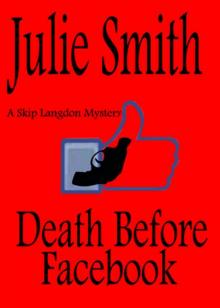 Death Before Facebook (Skip Langdon #4) (Skip Langdon Mystery) (The Skip Langdon Series)
Death Before Facebook (Skip Langdon #4) (Skip Langdon Mystery) (The Skip Langdon Series)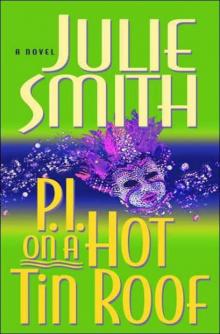 P.I. On A Hot Tin Roof
P.I. On A Hot Tin Roof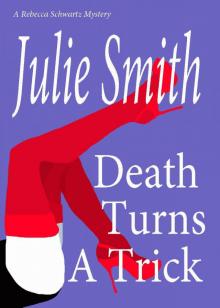 Death Turns A Trick (Rebecca Schwartz #1) (A Rebecca Schwartz Mystery) (The Rebecca Schwartz Series)
Death Turns A Trick (Rebecca Schwartz #1) (A Rebecca Schwartz Mystery) (The Rebecca Schwartz Series)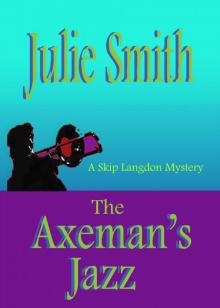 The Axeman's Jazz (Skip Langdon Mystery Series #2) (The Skip Langdon Series)
The Axeman's Jazz (Skip Langdon Mystery Series #2) (The Skip Langdon Series)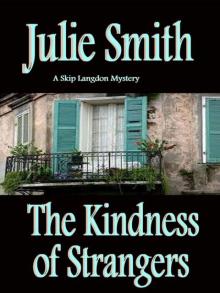 The Kindness of Strangers (Skip Langdon Mystery #6) (The Skip Langdon Series)
The Kindness of Strangers (Skip Langdon Mystery #6) (The Skip Langdon Series)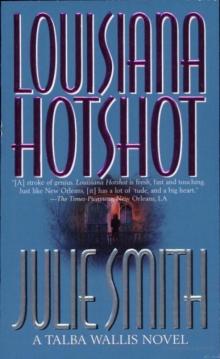 Louisiana Hotshot
Louisiana Hotshot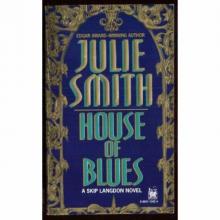 House of Blues
House of Blues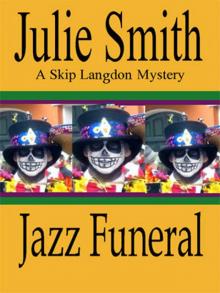 Jazz Funeral (Skip Langdon #3) (Skip Langdon Mystery) (The Skip Langdon Series)
Jazz Funeral (Skip Langdon #3) (Skip Langdon Mystery) (The Skip Langdon Series)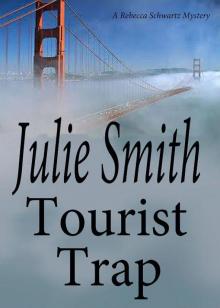 Tourist Trap (Rebecca Schwartz #3) (A Rebecca Schwartz Mystery) (The Rebecca Schwartz Series)
Tourist Trap (Rebecca Schwartz #3) (A Rebecca Schwartz Mystery) (The Rebecca Schwartz Series)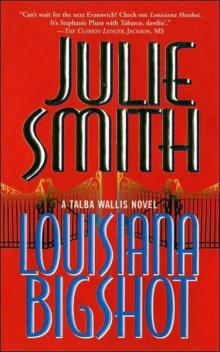 Louisiana Bigshot
Louisiana Bigshot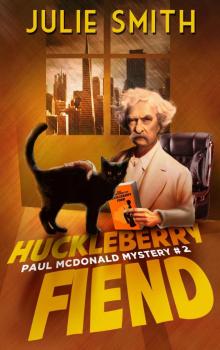 Huckleberry Fiend
Huckleberry Fiend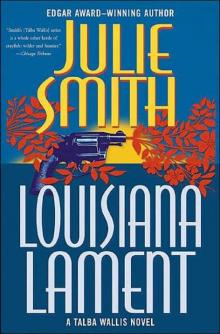 Louisiana Lament
Louisiana Lament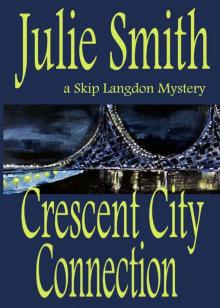 Crescent City Connection (Skip Langdon Mystery #7) (The Skip Langdon Series)
Crescent City Connection (Skip Langdon Mystery #7) (The Skip Langdon Series)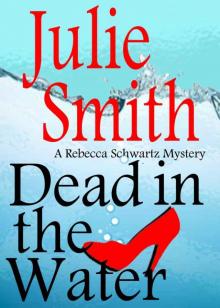 Dead In The Water (Rebecca Schwartz Mystery #4) (The Rebecca Schwartz Series)
Dead In The Water (Rebecca Schwartz Mystery #4) (The Rebecca Schwartz Series)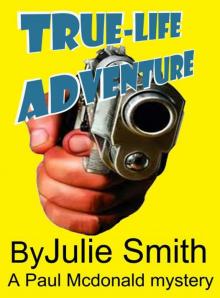 True-Life Adventure
True-Life Adventure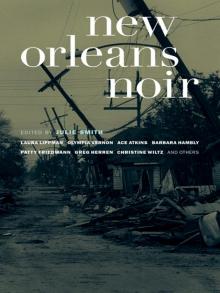 New Orleans Noir
New Orleans Noir